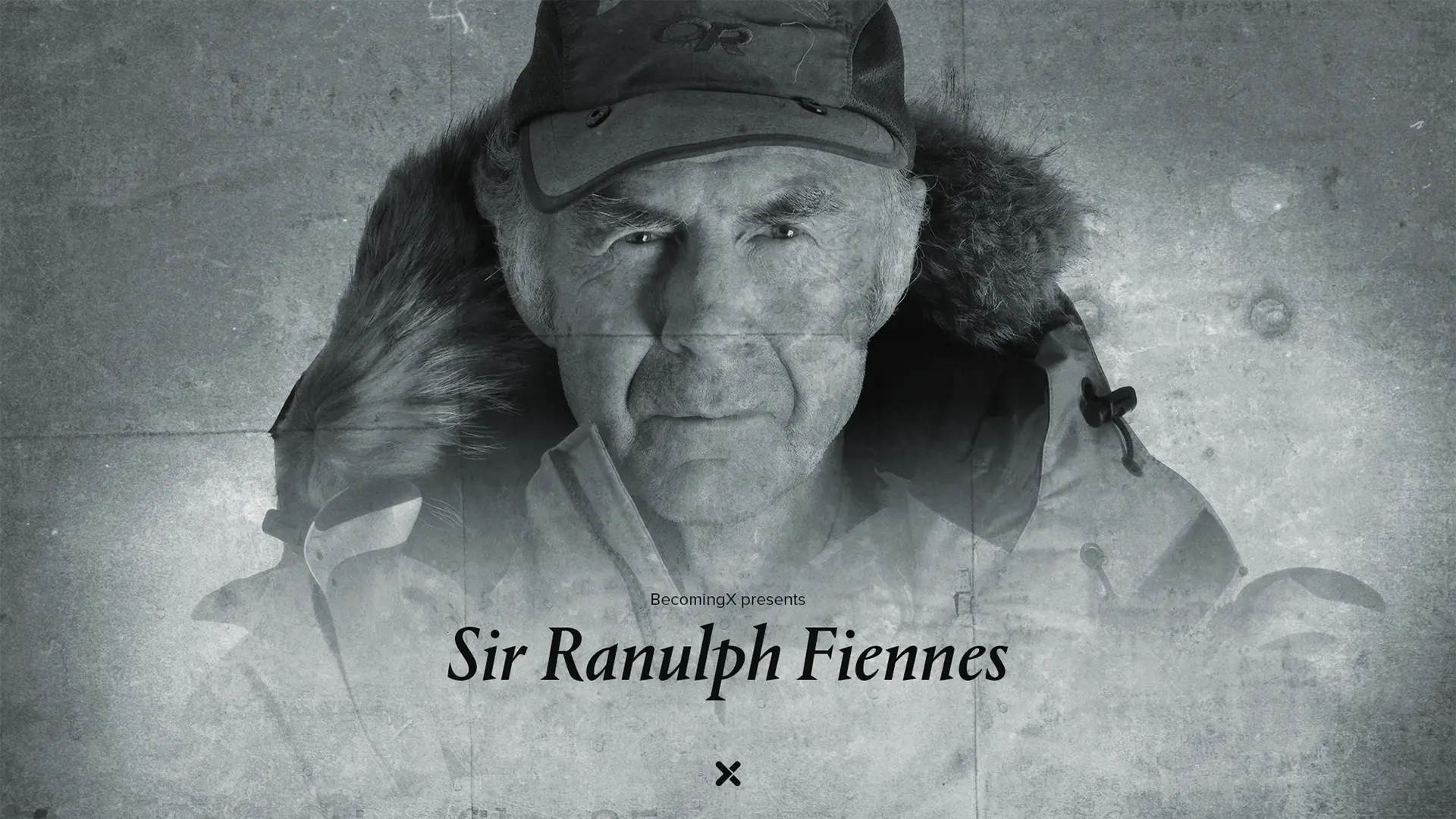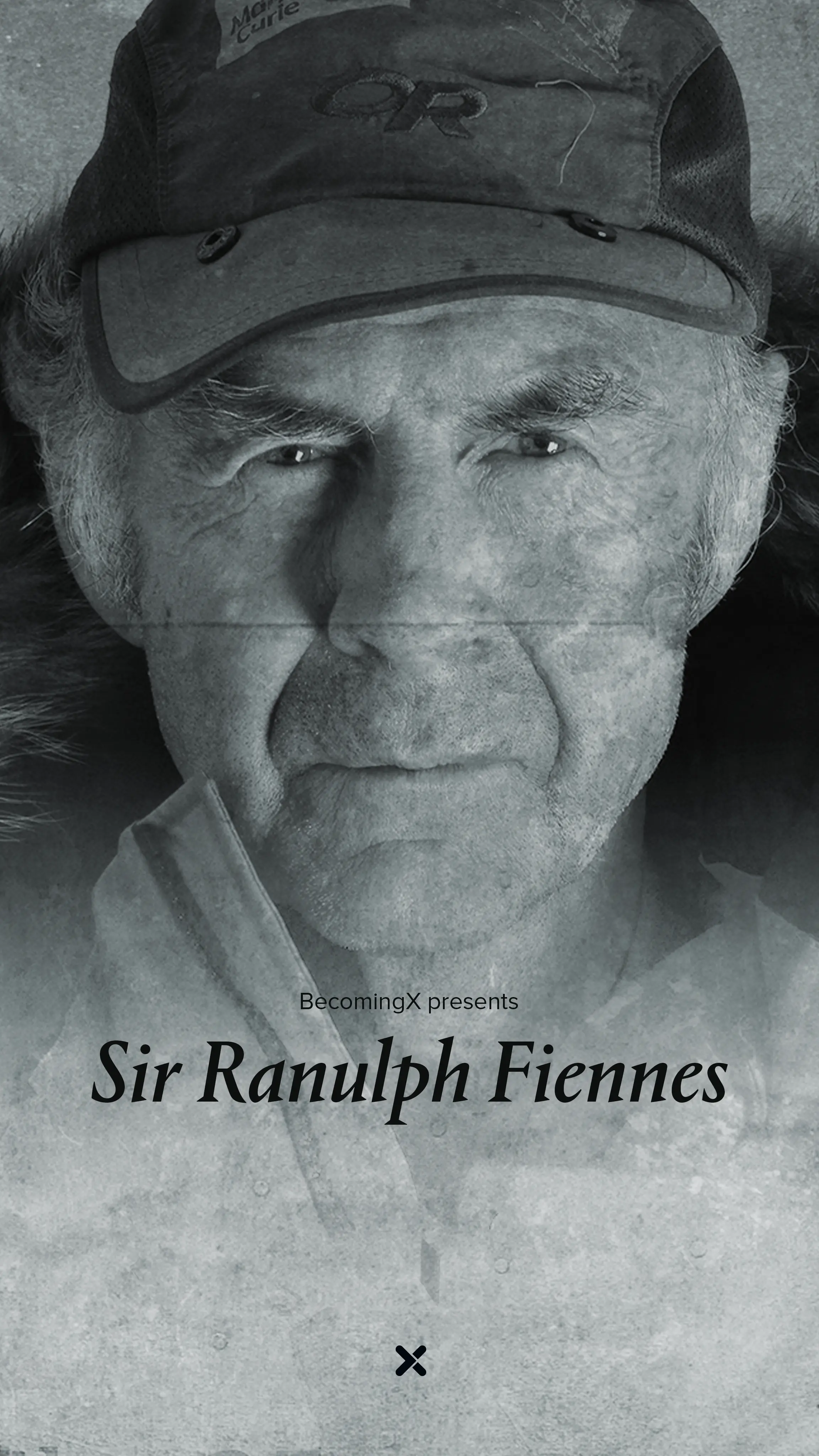

Sir Ranulph Fiennes, officially recognised as “the world’s greatest living explorer” in 1984, became the first person in history to circumnavigate the globe overland on its polar axis. To this day this feat has never been repeated. Beyond this, he was also the first person to visit both the North and South Poles by surface means, and the first to completely cross Antarctica on foot.
Despite all his incredible accomplishments, Fiennes remains incredibly humble. His journey to becoming an explorer emerged initially from a need to make money once he left the British Army. His late wife was the one to suggest breaking polar records, and together they worked unpaid for seven years, determined they would succeed. They made a living working in bars at weekends and over those seven years successfully acquired over 1,900 sponsors.
But perhaps one of the more unexpected challenges to overcome was persevering despite negative comments from onlookers. Despite the doubters who were taking bets on how far they’d make it. Fiennes had to be prepared. Research everything he could about why other people failed so they wouldn’t make the same mistakes. So they would prove the doubters wrong.
Fiennes places great value on teams and choosing the right people to be by your side. People with a positive attitude, not those who are going to bring you down. He talks about the inner voice inside his head on expeditions that tells him to give up. To stop. His ‘weak voice’ as he calls it. Fiennes fights this voice by imagining his dad and his grandad are watching, and so he pushes on to make them proud.
Fiennes’ achievements as an explorer serve as inspiration to adventurers and dreamers worldwide. He reminds us to follow those dreams and not let anyone else change that course. You are in charge, you choose your destination.
Sir Ranulph Fiennes – video transcript
I didn't ask to be called 'the world's greatest living explorer', but in 1984 we had the greatest number of exploratory records at that time. I would very much like to have done what my dad had done, which was to command the Royal Scots Greys tank regiment, but I failed the A-levels twice, and therefore couldn't become the commanding officer.
So I stayed in the British Army as long as I could, maybe eight years, and after that you were chucked out, and got married. She didn't have any money either. So, we tried to think what had I done in the army which could make a living.
Ginny, my late wife, found that the Norwegians had never managed to do a bipolar expedition, meaning to go the whole way round earth vertically on its surface without flying. So she decided we would break polar records. And the reason we went for something which had never been done before was because we couldn't get sponsorship unless it was something that had never been done before. And for seven years, we worked every day unpaid, working in pubs at weekends to make a living, and we got 1900 sponsors after seven years.
We had been told by the Foreign Office we would never be allowed to go unless we got some actual practice in the Arctic proper. People were sort of taking bets that we would come to grief in a crevasse before we even got away from the pole. All of this was sort of negatives. So you have to forget about the negatives and continue doing what you think you're good at.
When you've set out in Antarctica you've got to look into it very deeply, and find why previous people had failed and why that was as far as humans had been, no further.
Every government in the world forbids their citizens going into the interior, i.e. the vast middle bit, except for three months a year. So nine months of the year you're not allowed there, because there's no rescue facility anywhere, and if you ask for rescue, you won't get it, and therefore you become embarrassing to your government. Go as far as you can in that three months, but part of the three months is when the ship can get through the summer ice. So you haven't got three months, you've just got maybe one month to get inland as far as you can go, and then you have to sit there for nine months. You get very hungry, you get crotch rot, gangrene. Basically a weak voice comes into your head saying, "I want to stop", but it's not just your head that it's coming into, it's the other blokes. So as leader, you've got to choose the right blokes, because if he loses the mental battle and can't take it, the whole expedition's wiped out. Seven years preparation wasted.
I invent my own mental way of fighting this nasty, weak voice, which is to imagine that the people I respect most, my dad and my granddad, are actually watching, and I don't want to do something to let them down.
I don't like solo expeditions, and the only reason I do solo things is when the Norwegians have done that particular record with two people. So the only way of beating them is to do it with one person, and it always leads to disaster. Everybody knows if fall into a crevasse, you need someone else to pull you out. I would never have had to lose my finger ends, if I'd had my colleague, Mike Stroud, with me.
Anybody who has chosen a particular path, I would say, follow your dream at all cost, and the only person who should make you change from that course is if you decide to change from that course, not anybody else.
END CARD
Ranulph Fiennes became the first person in history to circumnavigate the globe overland on its polar axis. A feat never repeated to this day.
He was the first person to visit both the North and South Poles by surface means and the first to completely cross Antarctica on foot.
At the age of 65, he summitted Mount Everest.
He was officially recognised as the ‘World’s greatest living explorer’ in 1984.